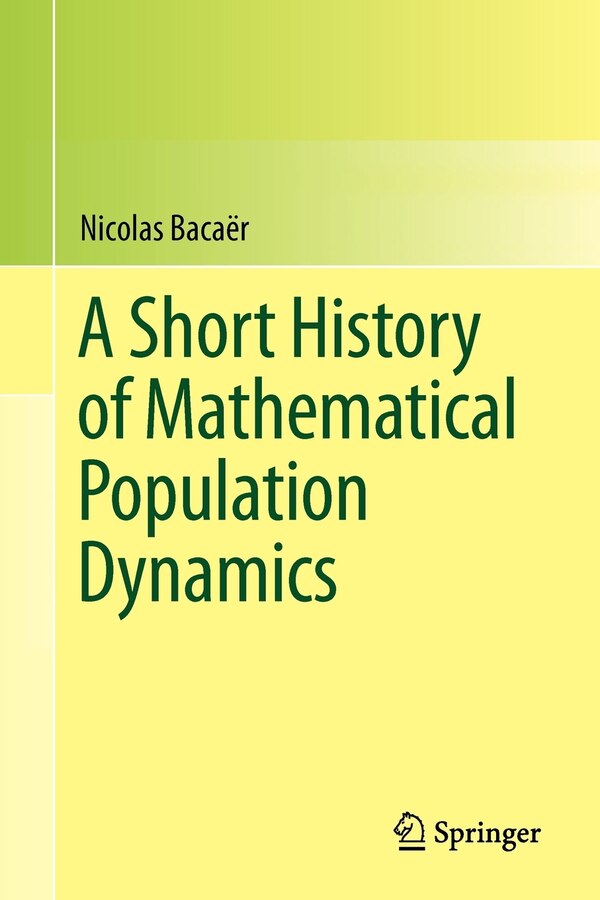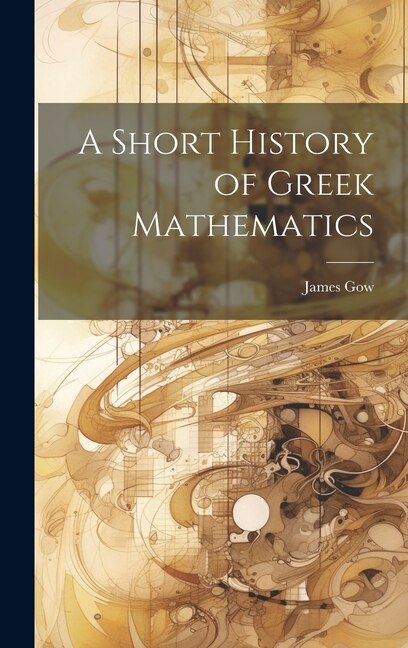
Give the Gift of Choice!
Too many options? Treat your friends and family to their favourite stores with a Bayshore Shopping Centre gift card, redeemable at participating retailers throughout the centre. Click below to purchase yours today!Purchase HereHome
A Short History Of Mathematical Population Dynamics by Nicolas Baca, Paperback | Indigo Chapters
Coles
Loading Inventory...
A Short History Of Mathematical Population Dynamics by Nicolas Baca, Paperback | Indigo Chapters in Ottawa, ON
From Nicolas Baca
Current price: $72.95


From Nicolas Baca
A Short History Of Mathematical Population Dynamics by Nicolas Baca, Paperback | Indigo Chapters in Ottawa, ON
Current price: $72.95
Loading Inventory...
Size: 1 x 9.25 x 1.21
*Product information may vary - to confirm product availability, pricing, shipping and return information please contact Coles
&p&As Eugene Wigner stressed, mathematics has proven unreasonably effective in the physical sciences and their technological applications. The role of mathematics in the biological, medical and social sciences has been much more modest but has recently grown thanks to the simulation capacity offered by modern computers.&/p&&p&This book traces the history of population dynamics-a theoretical subject closely connected to genetics, ecology, epidemiology and demography-where mathematics has brought significant insights. It presents an overview of the genesis of several important themes: exponential growth, from Euler and Malthus to the Chinese one-child policy; the development of stochastic models, from Mendel's laws and the question of extinction of family names to percolation theory for the spread of epidemics, and chaotic populations, where determinism and randomness intertwine.&/p&&p&The reader of this book will see, from a different perspective, the problems that scientists face when governments ask for reliable predictions to help control epidemics (AIDS, SARS, swine flu), manage renewable resources (fishing quotas, spread of genetically modified organisms) or anticipate demographic evolutions such as aging.&/p& | A Short History Of Mathematical Population Dynamics by Nicolas Baca, Paperback | Indigo Chapters
&p&As Eugene Wigner stressed, mathematics has proven unreasonably effective in the physical sciences and their technological applications. The role of mathematics in the biological, medical and social sciences has been much more modest but has recently grown thanks to the simulation capacity offered by modern computers.&/p&&p&This book traces the history of population dynamics-a theoretical subject closely connected to genetics, ecology, epidemiology and demography-where mathematics has brought significant insights. It presents an overview of the genesis of several important themes: exponential growth, from Euler and Malthus to the Chinese one-child policy; the development of stochastic models, from Mendel's laws and the question of extinction of family names to percolation theory for the spread of epidemics, and chaotic populations, where determinism and randomness intertwine.&/p&&p&The reader of this book will see, from a different perspective, the problems that scientists face when governments ask for reliable predictions to help control epidemics (AIDS, SARS, swine flu), manage renewable resources (fishing quotas, spread of genetically modified organisms) or anticipate demographic evolutions such as aging.&/p& | A Short History Of Mathematical Population Dynamics by Nicolas Baca, Paperback | Indigo Chapters

















